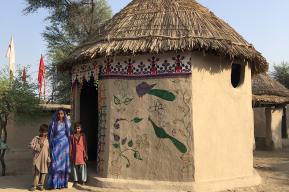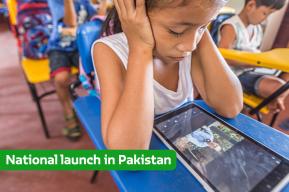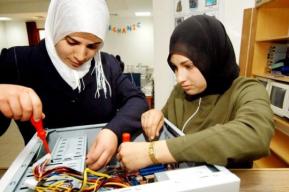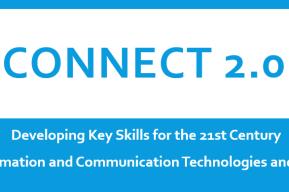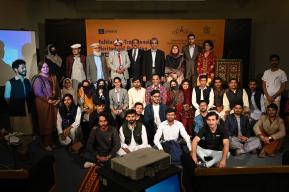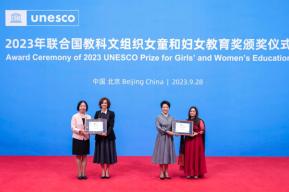News
Community engagement and online literacy empower girls and women in Pakistan

A Pakistani literacy programme with an online platform for women and out-of-school girls has been awarded the 2017 UNESCO Confucius Prize for Literacy.
The Citizens Foundation, a literacy programme with an online platform for women and out-of-school girls in Pakistan, has been awarded the 2017 UNESCO Confucius Prize for Literacy.
The Citizens Foundation was created in 1995 by a group of citizens concerned about the poor state of education in Pakistan. It has since generated positive social change in the country by building and managing schools. Today, the foundation runs 1,441 school units in over 100 of the poorest slums and villages across Pakistan. The community runs 85 % of the foundation’s literacy centres.
“The inspiration for starting an adult literacy programme emerged from the gap in home-school communication as mothers could not read or write, and teachers had no way of reliably communicating with parents,” said Amna Waheed Khalid, the Executive Advisor at The Citizens Foundation.
The programme offers a chance for acquiring literacy, numeracy and basic life skills to help learners become independent and manage everyday tasks related to household management, budgeting and reading and writing. In 2016, the programme enrolled 14,020 girls and women with a completion rate of 77 %.
The benefits of online presence and community engagement for literacy
By going digital, the programme has been able to reach new and wider learner groups through its ‘Aagahi Online’ platform. The management and monitoring has become easier by tracking location, recruiting staff and providing enrolment details of the literacy centres.
The digital platforms open up new possibilities for literacy learning, but the community engagement is as important to advance literacy. “Literacy course materials can be provided at all private schools, they are ready to be downloaded through the website or ordered online,” said Ms Waheed Khalid “If each literate person over the age of 15 years were to teach only one other illiterate person, we would eradicate illiteracy in less than a year.”
An ‘Aagahi’ student, Gul Bano, who mobilized other women and girls in her community to enrol and whose daughter is now a teacher at one of the schools of The Citizens Foundation, stressed on the importance of literacy teaching and learning.
“Everyone feels the need and the will to be literate, but only a few get this opportunity,” he said. “The challenges are the lack of schools, poverty, and social taboos on girls’ education. I think that teaching someone to be literate is a greater service to humanity.”
In terms of the benefits of winning the Prize award and the future of the literacy programme, Ms Waheed Khalid enthusiastically said:
“We have already gotten calls from the Ministry of Education in the Government of Pakistan, wanting to learn more about our literacy programme! The global recognition of our project is such a wonderful and unique opportunity for us to mobilise national and international support for eradicating illiteracy in Pakistan. We plan to use the prize money to help us scale further while focusing on cost efficiencies through digitization of training content and better inventory management.”
This year’s UNESCO International Literacy Prizes will be awarded to laureates from Canada, Colombia, Jordan, Pakistan and South Africa on the occasion of International Literacy Day, celebrated on 8 September. The award ceremony will be organized at UNESCO Headquarters and will be part of the global event. This year’s Literacy Prizes will focus on Literacy in a digital world.


